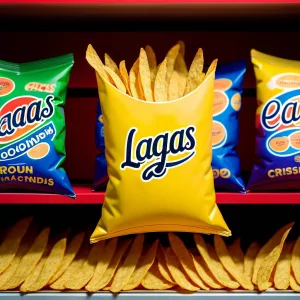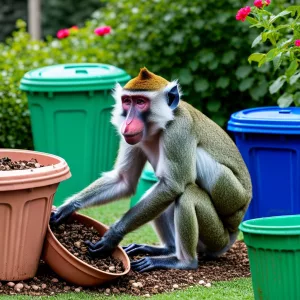Major supermarket chains like Shoprite and Checkers are recalling Heartland Foods cereals because some labels had wrong nutritional information. Even though they didn’t get any complaints, they want to be honest and keep customers safe. Shoppers can easily return the affected cereals for a full refund, no receipt needed! This recall shows how much these stores care about their customers and keeping food safe.
Join the excitement at Kirstenbosch Gardens for a magical movie event featuring Ryan Reynolds! Enjoy films like “Deadpool,” “IF,” and “The Proposal” under the stars, surrounded by the stunning beauty of nature. With picnic vibes and special ticket discounts, it’s the perfect way to spend an evening with friends and family. Bring your blankets and snacks, and get ready for an unforgettable experience filled with laughter, adventure, and romance! Don’t miss this chance to watch great movies in a breathtaking setting!
The Western Cape has made a bold move by lifting strict rules on cannabis and hemp, opening the door for new jobs and economic growth. This exciting change, backed by the Can Plan, aims to make the region a leader in the global market for these plants. With this new approach, local farmers and businesses can thrive, creating a brighter future and promoting sustainable practices. The shift is not only about the economy; it also encourages a cultural change, helping people see the benefits of cannabis and hemp in a new light.
PPC is diving into a bold new chapter with a hefty R3 billion investment to build a modern cement plant in the Western Cape, starting construction in late 2025. This new facility will not only boost cement production and cut costs but also help PPC reduce its carbon emissions, ensuring a greener future. As South Africa’s first cement maker, PPC is shaking off recent struggles and aiming for a strong comeback with this exciting project. By partnering with experts in engineering, they plan to create a stateoftheart plant that stands as a symbol of their resilience and commitment to sustainable growth.
Lay’s sour cream and onion crisps are back, and fans in South Africa couldn’t be happier! After a huge outcry and passionate pleas on social media, the beloved snack made its big return on March 3rd. With its iconic green bag back on store shelves, people are reliving sweet memories and sharing their excitement online. This tasty comeback shows just how powerful a community can be when they unite for something they love. So grab a bag and enjoy those crunchy, creamy bites once again!
The 60th Fleur du Cap Theatre Awards lit up Cape Town on March 23, celebrating the best in South African theater. The star of the night was the beloved musical My Fair Lady, which took home five awards, including Best Production. Talented performers like Leah Mari and Dean Balie shone brightly, earning top honors for their remarkable roles. The evening also recognized the incredible contributions of established figures like Professor Temple Hauptfleisch and celebrated new talents, ensuring the future of theater remains bright and exciting.
Starting April 1, 2026, South African homeowners with solar panels will face big changes. Eskom, the main power company, will raise fixed charges by 88% and require homeowners to pay R20,000 to R50,000 for new compliance costs. If they don’t meet these rules, they could be cut off from the electricity grid. This shift has sparked criticism as many worry it will make solar power too expensive for average families, even as it aims to offer fairer costs for everyone using the grid. As homeowners navigate these new rules, they are at a crossroads in balancing the benefits of solar energy with rising costs and regulations.
Join the magic of movies under the stars at The Galileo Open Air Cinema! This week, you can watch heartwarming films like *Kinky Boots*, *Almost Famous*, and *The Greatest Showman*, all while supporting the Eric Miles Cheshire Home through donations. Enjoy delightful stories and sing along to ABBA in *Mamma Mia!* as you create lasting memories with friends and family. With special discounts for students and pensioners, everyone can experience the joy of film and community together. Don’t forget to bring your donations and soak in the beauty of the night sky!
South Africa is facing a big tax problem, with about 100,000 wealthy people not paying their fair share. This leaves honest taxpayers carrying an unfair load, while many others rely on social grants. The government is trying to fix this by investing R7.5 billion into the tax authority, hoping to improve tax collection and make things fairer. The current system is struggling, and with just a small portion of people paying most of the taxes, it’s clear that changes are needed for a balanced and fair tax system. Everyone should contribute so that the country can thrive together.
Human Rights Day in South Africa is a special day to remember the Sharpeville Massacre of 1960, when police tragically killed 69 peaceful protesters fighting against unfair laws. It honors the bravery of those who sacrificed their lives for freedom and reminds everyone that the journey for justice and equality continues. Visiting important sites like Robben Island, where Nelson Mandela was imprisoned, and the Apartheid Museum, which tells the story of apartheid’s harsh reality, gives a powerful glimpse into this history. Each place tells stories of courage and hope, encouraging us to reflect on the past and work towards a brighter, fairer future for all.
At Zanemfundo Primary School in Phillipi East, teachers are living in fear as armed men demand protection fees, halting classes and sending educators into hiding. The terrifying events of February 28th have left the community shaken, with many teachers too scared to return to work. Despite police efforts and private security being called in, the threat of violence looms large, forcing teachers to seek safer environments. This crisis highlights the deeprooted issues of crime and poverty that plague the community, showing how the safety of education is at risk in these troubled times.
On a fishing trip off the coast of Hermanus, a father and three teenagers faced a terrifying ordeal when their boat capsized in icy waters. For over seven hours, they clung to the boat, battling cold and fear, until local anglers spotted them and alerted the National Sea Rescue Institute (NSRI). The rescuers swiftly arrived, pulling the tired group from the sea and providing urgent care. Thanks to their bravery and quick thinking, all four were rescued and are now on the road to recovery, a shining example of hope and courage in the face of danger.
South Africa is working hard to strengthen its friendship with the United States. President Ramaphosa is focused on improving trade, political talks, and cultural exchanges to build better ties. By sending key ministers to meet with US officials and appointing experienced diplomats like Ebrahim Rasool as ambassador, South Africa aims to clear up misunderstandings and promote cooperation. Despite some challenges, Ramaphosa is determined to keep the dialogue open, ensuring both countries can work together for a brighter future.
Monnapule Saleng, a talented player at Orlando Pirates, is struggling to get the respect and pay he believes he deserves. Earning R70,000 a month, he feels undervalued despite his impressive skills and contributions to the team. After being left out of games since December, Saleng is unhappy and considering leaving the club if things don’t get better. His story highlights the tough battles athletes face for recognition and fair treatment in the world of sports. With a bright future ahead, Saleng’s journey reminds us all how important it is to be valued for our hard work.
In the beautiful coastal town of Simon’s Town, wildfires have forced clever baboons to seek food and shelter among people. As these playful primates rummage through gardens and trash bins, locals have mixed feelings—some find them funny, while others are frustrated by the chaos they cause. To help harmony thrive, residents are encouraged to keep their homes secure, avoid feeding the baboons, and support efforts to restore their natural habitat. By making smart choices, both humans and baboons can share this vibrant space together, reminding us all of our bond with nature.
In postapartheid South Africa, the fight for equality faces many tough challenges. Thuli Madonsela, a strong voice for justice, criticizes AfriForum for resisting the changes needed to treat everyone equally, especially after the unfair advantages of the past. She believes that true equality means everyone must be treated the same, pushing against old privileges. Moreover, AfriForum’s actions, like seeking support from international figures, complicate the journey towards fairness and unity in South Africa. As the nation works to heal its wounds from apartheid, embracing inclusivity and acknowledging history is vital for a brighter future.

















